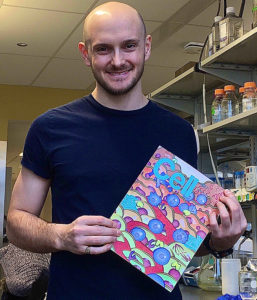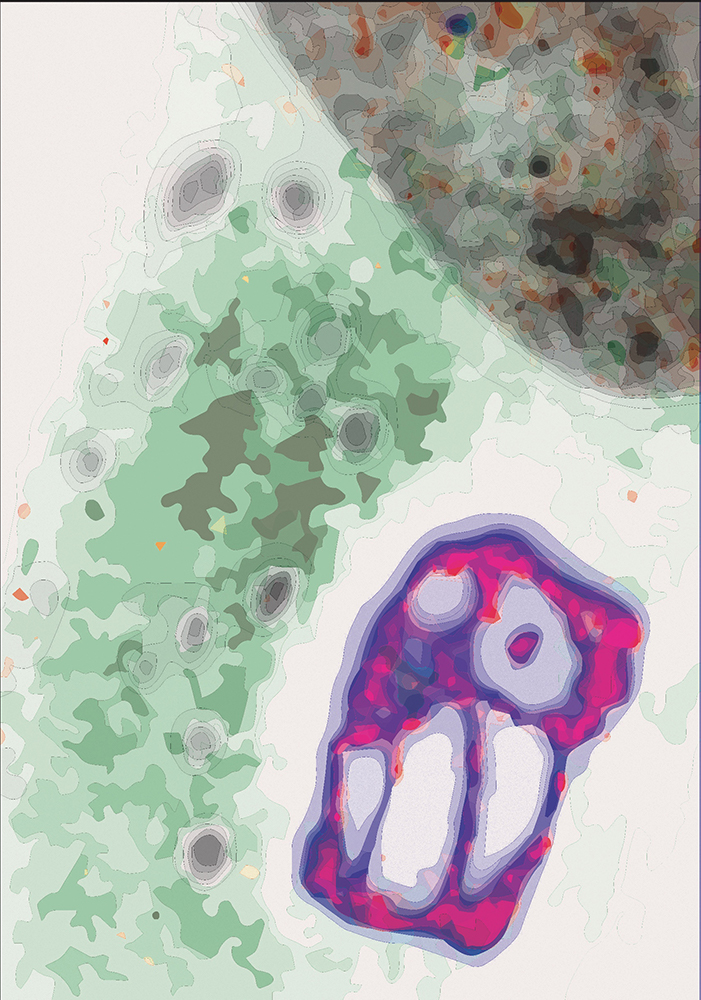From ‘bubble’ to Cell
Nathan Meade (BSc 2010) describes how four years in ‘the bubble’ set him on the path to being published in the ‘Cell’ – one of the most highly respected journals in science.
Memories
I was elated when I was given an offer to study Marine Biology at St Andrews. Such a prestigious University was quite far removed from my primary school days with just 80 children across six-year groups. I knew there would undoubtedly be high-quality teaching, and that a St Andrews degree would give me unrivalled opportunities. I think the main attraction, however, was gaining the independence I wanted, but within a supportive, close-knit community in one of the most stunning areas of the UK.
I have so many memories of my time in the ‘bubble’ that choosing just one is extremely difficult. I will certainly never forget those friends and relationships that made my four-year period so special. Class-mates, flat-mates and team-mates from the football team – not to mention the vast array of random people I’d meet at the union or in “The Raisin” – all contributed to a period that has defined the person I am today.
The fascinating world of microbiology
Marine biology has always been and continues to be a major interest of mine. Yet it was those initial years studying general biology that made me aware of the fascinating world of microbiology. It really captured my interest and, for this reason, I changed my degree title to Biology. In years three and four I became particularly fascinated by viruses. This really took off during my final year research project, when I was working on the cellular innate immune response to parainfluenza virus infection in Professor Rick Randall’s lab of the BMS building at the North Haugh.
Project Zambia
After graduating with my Biology degree, I was lucky enough to be selected as a member of Project Zambia for the University of St Andrews, which involved integrating life skills and HIV & AIDS education with sport. I was more involved with the sporting aspect, thanks to being former captain of St Andrews Uni 1st XI football team.
After this, I worked for six months in Australia, but then I began to get restless and decided to throw myself into academia.
If at first you don’t succeed …
Perseverance is a characteristic that everyone needs at some stage in their lives, and I certainly needed it after I had made this decision. I was rejected after many interviews, but I just kept applying. It’s a competitive field out there!
The turning point came when I discovered that the Biotechnology and Biological Sciences Research Council (BBSRC) had recently twinned with the University of Nottingham through a doctoral training partnership to fund 20 PhD students over four years: I was lucky enough to be selected in the first cohort of this partnership in 2012.
I studied ‘Intervention Strategies Against Rotavirus in Pigs’ under my Principal Investigator (PI) Dr Kenneth Mellits. Ken knew Rick Randall and several other virology lecturers at St Andrews. He was very impressed with my undergraduate Biology degree and that I had been educated by such esteemed academics. My passion for continued study in the field of virology was driven by my initial years at St Andrews.
Cell
Once I gained my PhD, I applied for post-doctoral positions and got a place in Dr Derek Walsh’s lab at Northwestern University across the pond in Chicago, where I now reside. I currently work on the manipulation of translation (protein production) by Poxviruses. A signalling pathway known as mTOR balances the rate of protein synthesis within our cells, but when poxviruses invade, they completely overhaul this system for their own benefit.
It is on this method of manipulation by poxviruses that I have published three peer-reviewed papers at Northwestern. The primary paper was published in Cell – one of the most highly-respected scientific journals. This achievement was in part made possible by the phenomenal education I received at St Andrews, which set me on a pathway into academia.
It all began at St Andrews
I couldn’t guess at what the future may hold right now. I love my post-doc and exploring the wonders of poxviruses, and I’ve settled down well in the United States. I would like to publish a few more high-impact papers in the Walsh lab before I make any concrete decisions. While I have had an amazing journey in academia so far, there are many aspects of science that interest me greatly, including epidemiology, public health and education. Who knows if I will decide to make my way up the academic ladder or pursue other aspects of science?
What I can say is that I seem destined for a life in microbiology, which all began during some of the greatest years I could have wished for at St Andrews.

